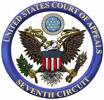 The Seventh Circuit had two new opinions in criminal cases in the past week, with the government winning both appeals. By some coincidence, both cases involved the use of prior crimes evidence at trial, a topic that was also the focus of my last “Week in Review” post. Indeed, one of this past week’s cases was strikingly similar in its facts to Perkins from the previous week, but was analyzed in a rather different manner.
The Seventh Circuit had two new opinions in criminal cases in the past week, with the government winning both appeals. By some coincidence, both cases involved the use of prior crimes evidence at trial, a topic that was also the focus of my last “Week in Review” post. Indeed, one of this past week’s cases was strikingly similar in its facts to Perkins from the previous week, but was analyzed in a rather different manner.
United States v. Webb (No. 08-1338) was the new case similar to Perkins. Webb was arrested in connection with the discovery of drugs in the house of his friend Hartman. At Webb’s trial on drug trafficking charges, the government introduced into evidence Webb’s 1996 conviction for distributing cocaine. Following his conviction on the new charges, Webb argued on appeal that this evidence violated Federal Rule of Evidence 404(b), which prohibits the use of prior crimes evidence for the purpose of establishing a defendant’s propensity to commit new crimes. In response, the government argued (precisely as it had in Perkins) that the prior crimes evidence helped to establish intent and absence of mistake, which are two permissible purposes for such evidence. In last week’s post, I argued that the Seventh Circuit accepted these arguments too uncritically in Perkins; based on the reasoning of that case, it was hard for me to see how prior drug trafficking convictions would ever be kept out of evidence in new drug distribution cases.
But in Webb, the Seventh Circuit (per Chief Judge Easterbrook) correctly recognized how tenuous the government’s intent/mistake theory was. The court also recognized the “tension” in its prior cases regarding the use of prior drug crimes evidence.


